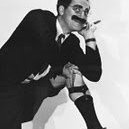Tennis: Who Will Be #2?
Who's #2?
22 members have voted
-
Recently Browsing 0 members
- No registered users viewing this page.
-
Topics
-
-
Popular Contributors
-
-
Latest posts...
-
11
Crime Russian Man Assaulted and Robbed in Pattaya
Why aren’t netizens outraged at a foreigner urinating in a public place? -
22
I need rotator cuff surgery my insurance turned me down where to go for less than 350,000b?
With the rotator cuff, using the sling and doing all the PT is critical. If you pick your arm up on your own, you can damage it. -
165
Trump's crackdown on LA protests is pure hypocrisy
You conveniently overlook the fact that California's climate is pretty much ideal for those lacking reliable shelter. The climate is a magnet drawing from most other places. Homelessness in AK doesn't happen. The awesome climate also makes the RE prices high which is correctly beyond any governmental control. Maybe Trump, when he's officially the dictator can set the prices. -
60
Crime French National Arrested in Pattaya for Sexually Assaulting 13-Year-Old Girl
There are some little beasts in that age group. I remember a case in Germany where a 13 year old girl was earning money by giving blow jobs to men in a pub car park, it only came out because she tried to get one of her classmates to join in, instead she told her mother who reported it to the police. It ended with the police taking her to the pub to identify her previous customers, about half the pub were arrested. -
11
-
5
Islamist Refugee at Centre of Pro-Palestinian Protest Sparks Uproar Over Two-Tier Policing
Most Moslems that I know and have worked with were very westernized and fitted in quite well . Unfortunately the chances of any of them openly questioning the Radicals is extremely remote, it could be called self preservation, something that everyone understands.
-
-
Popular in The Pub







.thumb.jpeg.d2d19a66404642fd9ff62d6262fd153e.jpeg)






Recommended Posts
Create an account or sign in to comment
You need to be a member in order to leave a comment
Create an account
Sign up for a new account in our community. It's easy!
Register a new accountSign in
Already have an account? Sign in here.
Sign In Now